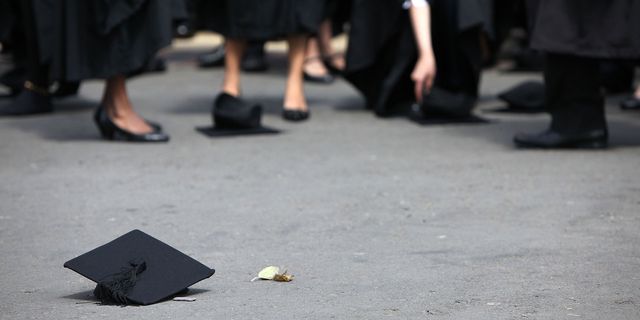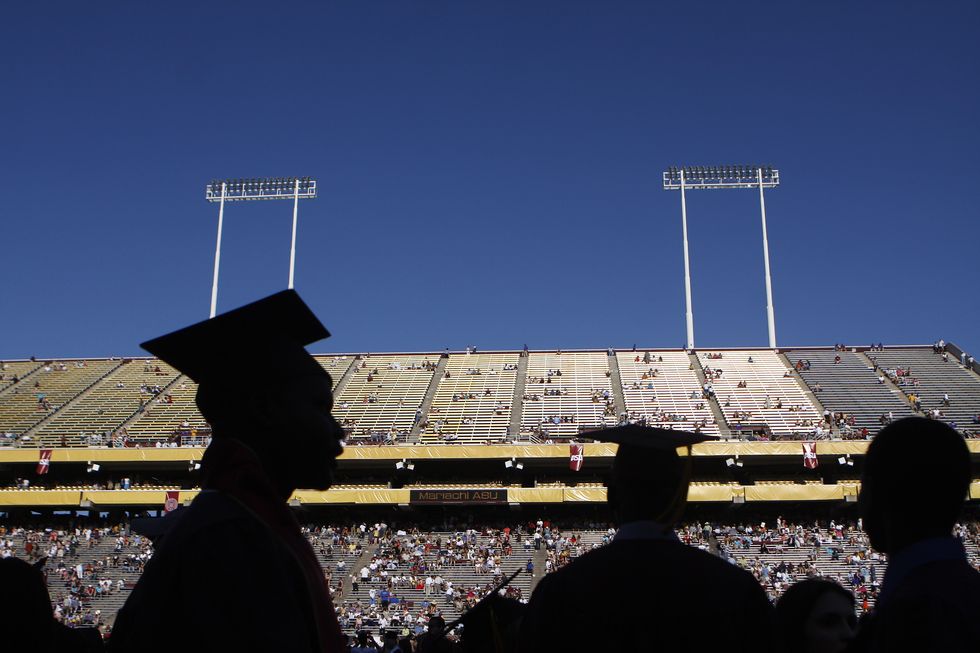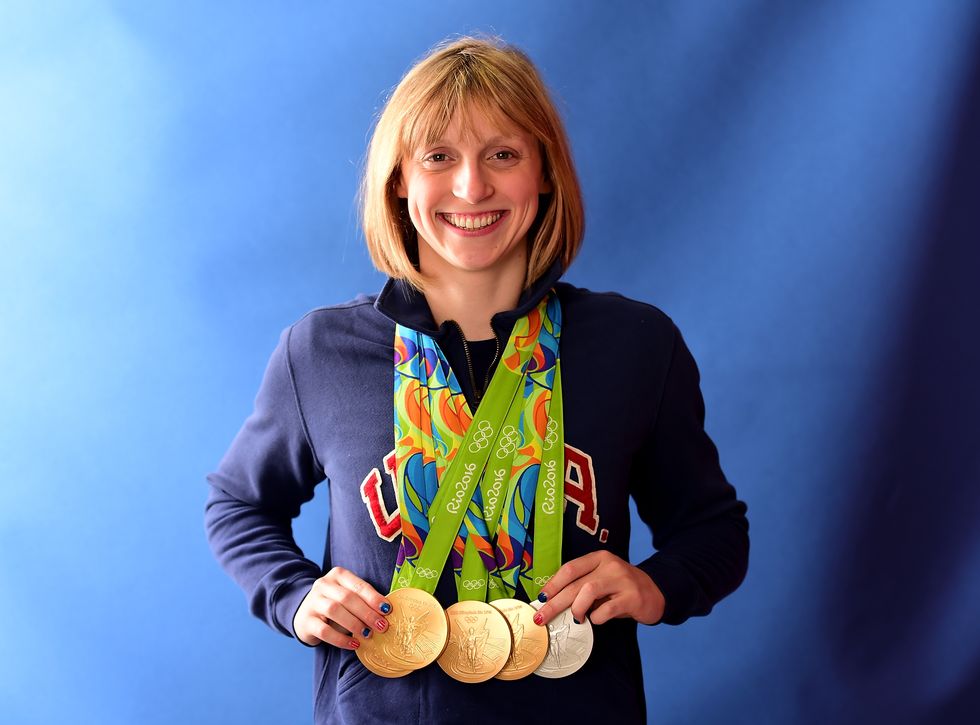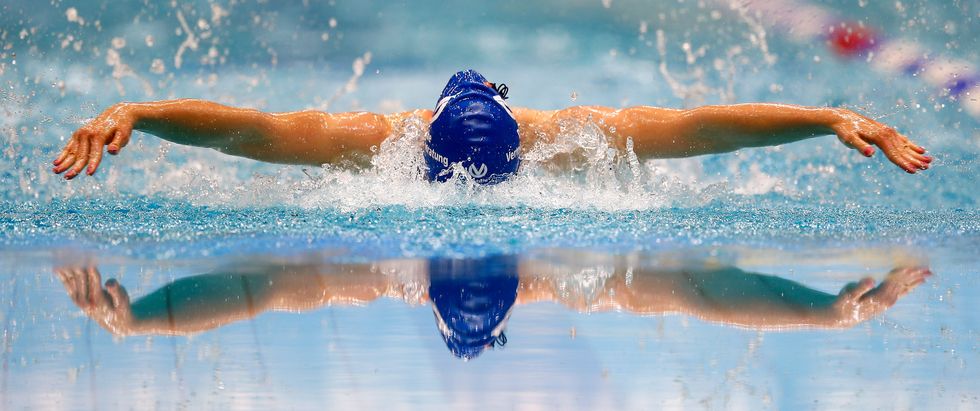Imagine the situation.
You've just won four gold medals in the 2016 Rio Olympics, set two world records and are about to make millions of pounds from endorsement deals and celebrity appearances.
However, you deferred your place at university for a year and promised to give up your Olympic career for academia following the Games. As a result, you'll pass up the chance of earning millions of pounds from sponsorship deals.
What do you do?
Well, US Olympic swimmer Katie Ledecky has decided to stay true to her word to Stanford University and start her university education next month.
Yesterday, the 19-year-old told ESPN: 'I've always wanted to swim collegiately and have that experience.'
'I think it is going to be a lot of fun to be on a team with some really great friends and great swimmers and also just go to class with them.'
'But, why can't she swim collegiately and real in the perks of her Olympic success?' we hear you cry.
According to the National Collegiate Athletics Association, being an amateur sportsperson competing at university means you can't earn money from your sport, no matter how many sponsors or endorsement deals come your way.
This means Katie Ledecky isn't allowed to become a millionaire at the height of her sporting career because 'them's the rules', apparently.
It only takes one look at Missy Franklin (the US swimmer who won four gold medals in the 2012 London Olympic Games but turned down a professional career to swim for Berkeley University) to see that choosing academia when you're at peak fitness and popularity following the Olympics is a decision not to be taken lightly.
After all, this chance only comes once every four years.
Since quitting the professional realm of swimming, Franklin failed to win a medal in Rio and despite tuning pro last year, she lost out on the chance to maximize her income potential when she was at the height of her career.
Luke Bonner, sports and entertainment marketing manager for the agency GYK Antler spoke of Ledecky's decision and said: 'From my perspective it's a shame it's an either-or situation.
'From an athlete's perspective really, the only people who can benefit financially from the college athlete's marketability is the NCAA and the NCAA sponsors,' he added.
Of course, whatever decision Ledecky makes is entirely her own and turning down money for an education isn't wrong but it's a decision that shouldn't be forced upon the athlete.
Earning money from sport – regardless of the level – shouldn't affect an athlete's decision to study or not.
Besides, with the ludicrous cost of student fees in the U.S and the amount of students required to work while studying for a degree, what's wrong with earning an income from doing something you're good at?

Katie O'Malley is the Site Director on ELLE UK. On a daily basis you’ll find Katie managing all digital workflow, editing site, video and newsletter content, liaising with commercial and sales teams on new partnerships and deals (eg Nike, Tiffany & Co., Cartier etc), implementing new digital strategies and compiling in-depth data traffic, SEO and ecomm reports. In addition to appearing on the radio and on TV, as well as interviewing everyone from Oprah Winfrey to Rishi Sunak PM, Katie enjoys writing about lifestyle, culture, wellness, fitness, fashion, and more.
















